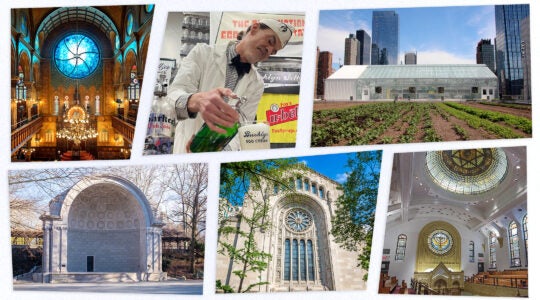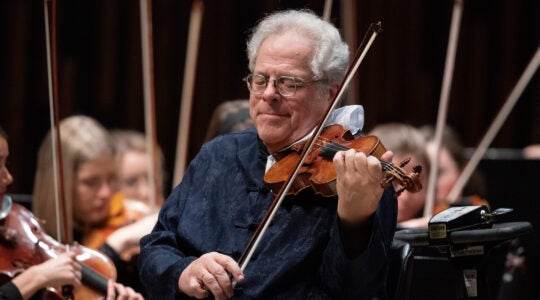For Inderjit Singh, it was the time a little girl walked up to him on the street shortly after 9/11 and asked if he was going to bomb someone that day.
For Vincent, it was the time he was fired for being openly gay, as well as the day someone yelled “faggot” at him from a passing car.
Across the city on Thursday, people came together to discuss their experiences with ignorance and prejudice in a series of events in each borough dubbed “A Day Out Against Hate.”
The events were coordinated by the City Council in response to a spike in bias crime incidents in recent months, most of them directed against Jews and blacks.
Council Speaker Christine Quinn — who announced the events last month after two professors at Columbia Teachers’ College were targeted in separate incidents with a noose and a swastika — spent the day shuttling to each event, from an early interfaith breakfast at Medgar Evers College in Brooklyn to an evening roundtable with students, labor leaders and members of the New York Police Department’s Hate Crimes Task Force in Lower Manhattan.
“I’m encouraged by the number of people who turned out,” said Quinn at Queensborough Community College in Bayside, where a group of eighth grade students met with five Holocaust survivors. Earlier that morning, Police Commissioner Raymond Kelly addressed the rise in hate crimes in a breakfast speech to Jewish community leaders in Borough Park.
He cited the racial strife in Jena, La., and the recent New York visit of Iranian President Mahmoud Ahmadinejad as likely factors.
“These incidents build on one another, spurred by events,” said Kelly.
A majority of those arrested for hate crimes, Kelly said, are young people, usually between the ages of 15 and 20. Sixty percent, he said, “are thrill-seekers rather than ideologues.” In addition, he said the crimes are often personal. “Most are reacting to someone they know.”
Reacting to those comments later, Quinn said, “Those who commit bias crimes are ignorant, and sometimes ignorant people act violently or cause offense because of their ignorance. We need loud and strong voices to respond to it.”
At Queensborough, which is home to the Holocaust Resource Center and Archives, students from Intermediate School 266 in Floral Park, Queens, met with five Holocaust survivors, including Max Hirschhorn, who recently turned 100.
“Do you ever feel that you want to boycott German products?” asked one student.
“I have been doing so for the past 60 years,” said Helen Stechler. Recalling her childhood in Poland, Stechler said, “I remember sitting in class and the teacher talked about hating the Jews,” she said. “She taught [the students] to hate. It was jealousy in my opinion. They don’t want to think about what they can do to make themselves better. It’s easier to hate someone.”
Councilman David Weprin, who hosted the event in his district, said the students were “a very diversified student group and a lot of them had never heard from Holocaust survivors.”
“There is a lot of ignorance,” he said. We have to take a stand and [tell people] don’t judge a book by its cover.”
Michael Miller, executive vice president of the Jewish Community Relations Council of New York, said the programs were “well thought out.”
The Brooklyn interfaith breakfast, he said, “included an array of religious leaders from virtually every faith group there is in New York. It reinforced the imperative of communicating to the followers, not only leaders, the importance of combating hate and particularly hate crimes.”
After watching a diverse group of students at Staten Island’s Susan Wagner High School enact a dramatization about hate and conflict resolution and the choices they regularly face, Miller said, “I came back to the office gushing with praise.”
Asked if the event was planned for next year, Quinn said, “Hopefully there won’t be a need to do this next year. But we’re not just going to forget it for the next 12 months and then have another day. We’re going to have programs all year long.”
The New York Jewish Week brings you the stories behind the headlines, keeping you connected to Jewish life in New York. Help sustain the reporting you trust by donating today.




